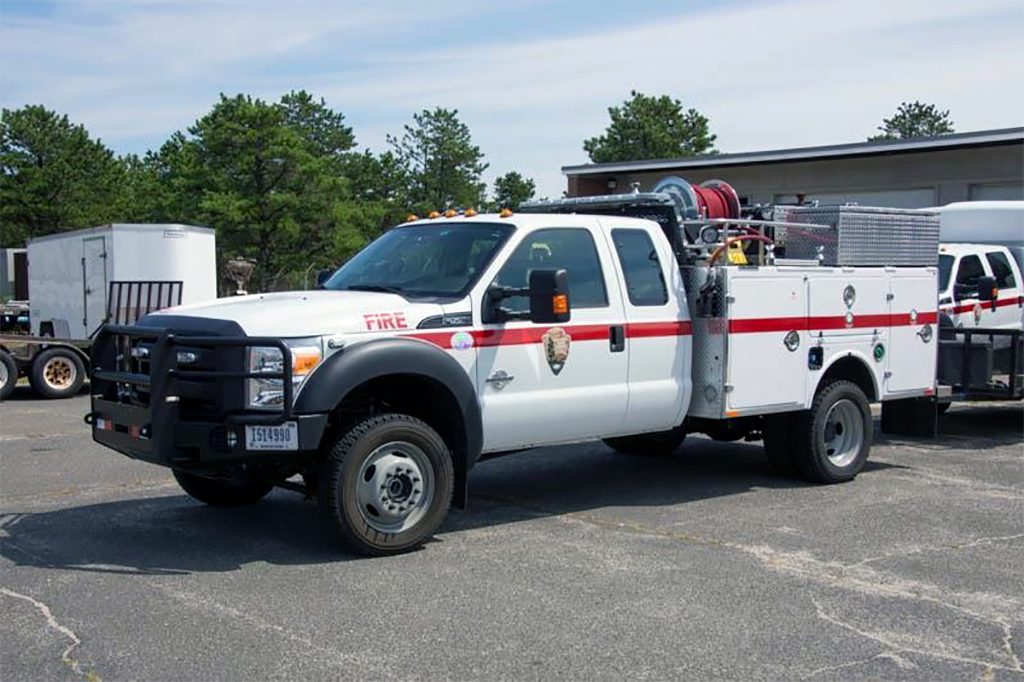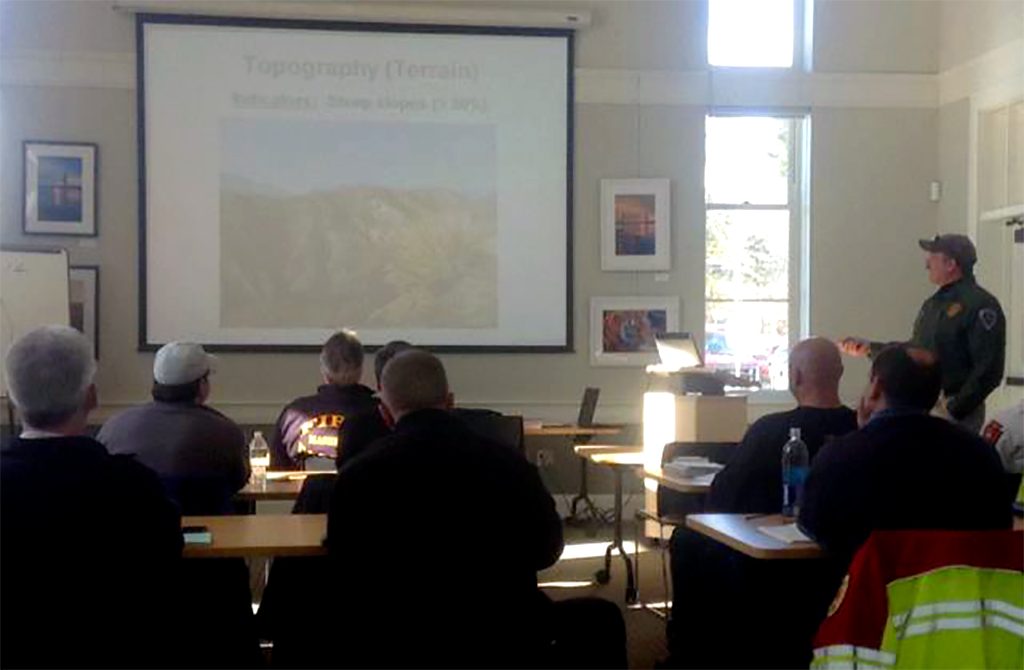MASHPEE – On Monday, March 2, the Massachusetts Department of` Conservation and Recreation Bureau of Forest Fire held a training course entitled “Introduction to Wildland Fire Behavior” at the Mashpee Fire Department.
The course covered the primary factors affecting the start and spread of wildfire and recognition of potentially hazardous situations. It provided the students with wildland fire behavior knowledge applicable for safe and effective fire management activities for wildfires, prescribed fire, and fire use. This course introduced students to characteristics and interactions of the wildland fire environment—fuels, weather, and topography—that affect wildland fire behavior for safety purposes.

Mashpee Fire Chief Thomas Rullo sponsored the course in anticipation of the arrival of a new wildland type 6 fire engine, which replaces a brush breaker built in the 1970s. The photo at top shows a type 6 engine operated by the National Park Service on Cape Cod, the same type that Mashpee is getting.
Chief Rullo reports that his officers asked for the training because the new engine would necessitate a change in tactics. “Rather than just do the training for Mashpee, I thought it would be a good platform for other Cape towns as well.” In attendance were all the fire officers from the Mashpee Fire Department and chiefs and deputies from the Sandwich, Centerville-Osterville-Marstons Mills, Cotuit, West Barnstable, Yarmouth and Wareham fire departments.

In all, seven chiefs and seven officers took advantage of the training delivered by Dave Celino and Joshua Nigro from the DCR, Dave Crary from the National Park Service and David Walker from the US Fish and Wildlife Service. Chief Rullo pointed out that, while the training was based on national standards, the Cape requires techniques different from the western mountains or grasslands of the Midwest. “The instructors were able to add local flavor,” he said. Chief Rullo reports that once the new vehicle arrives sometime in early April his department will do in-service training and develop standard operating procedures.
Dave Celino, Chief Fire Warden of the Massachusetts Department of Conservation and Recreation Bureau of Forest Fire Control and one of the instructors said, “It’s impressive to see the interest from fire departments in wildland fire training across the Cape. The pitch pine barren has long been known as a potential high fire risk and DCR Forestry and Fire Control remains committed to facilitating this type of training to our partners in the municipal fire departments.”

